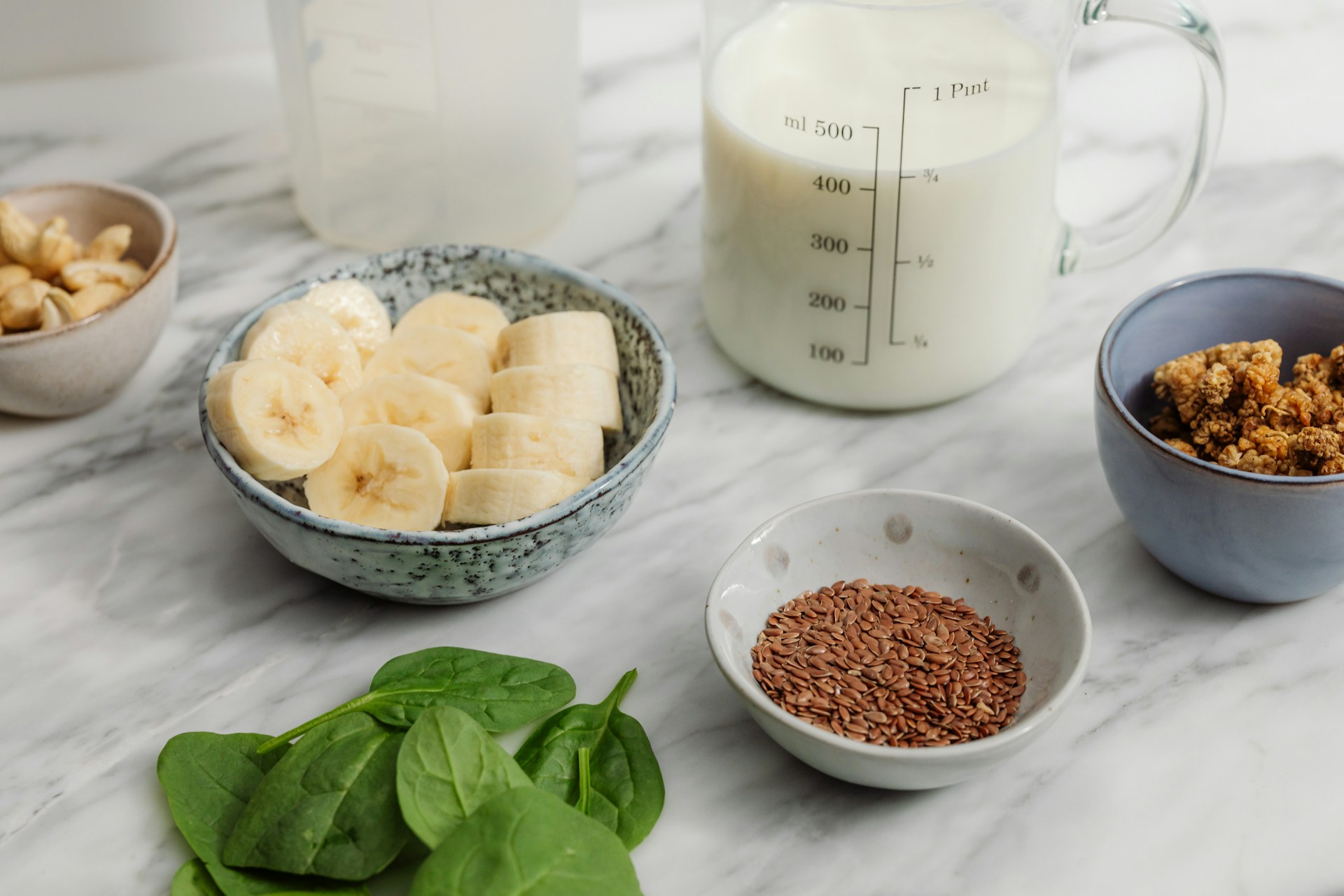Strong bones are the foundation of a healthy life. They support the body, allow for movement, and protect vital organs. The bones also store important minerals like calcium and phosphorus, which help maintain their strength and function. Keeping the bones healthy is crucial as you grow and age.
There are many things that can impact bone health, like diet, exercise, and certain lifestyle choices. It’s important to be aware of these factors to ensure bones remain strong throughout life. Eating a balanced diet, staying active, and considering herbal supplements can all contribute to healthier bones.
Exploring the relationship between nutrients, herbs, and bone health can help you make informed choices. This article will discuss ways to support and enhance bone health naturally, paving the way for a stronger body.
The Importance of Strong Bones
Strong bones are vital for people’s overall health and well-being. They support the body’s structure and allow people to move freely. The bones also protect vital organs, such as the heart, brain, and lungs. Over time, if bones weaken, they can lead to fractures and conditions like osteoporosis.
Having strong bones means they can handle the stress of daily activities without breaking easily. Healthy bones store essential minerals, including calcium and phosphorus, which play crucial roles in various body functions. Maintaining bone density is essential for staying active and avoiding injuries.
Keeping bones strong requires a healthy diet, regular exercise, and proper lifestyle choices. These elements work together to support bone density and strength, ensuring you maintain mobility and independence as you age. Understanding the importance of bone health can motivate positive changes to protect and strengthen bones throughout your life.
Common Factors Affecting Bone Strength
Several factors can impact bone health and strength. Understanding these factors helps in making smart choices for bone care:
1. Diet: Lacking important nutrients, like calcium and vitamin D, can weaken bones.
2. Physical Activity: Regular exercise, especially weight-bearing activities, strengthens bones.
3. Age: As everyone grows old, bones naturally lose density, making them more fragile.
4. Hormonal Changes: Conditions like menopause can cause bone density loss due to decreased hormone levels.
5. Lifestyle Habits: Smoking and excessive alcohol consumption can harm bone health.
6. Medical Conditions: Diseases such as rheumatoid arthritis can lead to weaker bones.
By addressing these factors, you can take steps to enhance or maintain your bone health, reducing the risk of bone-related issues.
Key Nutrients for Bone Support
1. Calcium and Vitamin D: Essential Duo
Calcium and vitamin D are the power team for bone health. Calcium is the main building block of bones and teeth. Without enough calcium, bones can become weak and brittle. Your body cannot produce calcium, so it must come from your diet.
Vitamin D plays a critical role in helping your body absorb calcium. Without sufficient vitamin D, even if you consume enough calcium, your body cannot use it effectively, leading to poor bone health. This vitamin also supports cell growth and immune function.
To ensure you get enough of this essential duo:
– Eat Dairy Products: Milk, cheese, and yogurt are excellent sources of calcium.
– Consume Leafy Greens: Spinach and kale provide plant-based calcium.
– Get Sunlight: Vitamin D is synthesized in the skin through sunlight exposure.
– Consider Fortified Foods: Some cereals and plant-based milks are enriched with vitamin D.
– Take Supplements If Needed: When diet and sun exposure are insufficient.
By focusing on these nutrients, you can significantly boost your bone strength and help prevent bone-related issues.
2. Magnesium and Vitamin K: Supporting Roles
Magnesium and vitamin K are crucial support players in maintaining healthy bones. Magnesium helps convert vitamin D into its active form so that calcium absorption is better supported. This mineral also contributes to bone structure and strength.
Vitamin K works by regulating bone metabolism and helping produce proteins that maintain bone density. It helps bind calcium to the bone matrix, ensuring bones stay strong.
You can include these nutrients in your diet by:
– Eating Nuts and Seeds: Almonds and pumpkin seeds are rich in magnesium.
– Adding Whole Grains: Brown rice and oats offer magnesium content.
– Choosing Leafy Greens: Kale and broccoli provide vitamin K.
– Incorporating fermented foods: Foods like natto are high in vitamin K2.
These nutrients, when combined with calcium and vitamin D, create a solid foundation for bone health, supporting strength and resilience.
Herbal Remedies for Enhancing Bone Health
1. Horsetail: Rich in Silica
Horsetail is a powerful herb known for its high silica content. Silica is important for bone health as it aids in the growth and maintenance of bones. It helps improve bone density and can even support the healing of fractures. This ancient plant has been used for centuries to promote skeletal health.
To incorporate horsetail into your routine, consider using it in tea or as a supplement. Drinking horsetail tea regularly can provide silica, which assists in maintaining strong and flexible bones. Horsetail supplements are also available for those who prefer an easy and direct way to get their boost of silica.
Besides promoting bone strength, horsetail has been noted to support joint health, providing a holistic approach to maintaining a strong skeletal system. Before adding any herbal remedy to your routine, it’s always a good idea to discuss it with a healthcare provider.
2. Nettle: Packed with Calcium
Nettle is another beneficial herb for bone health, as it’s packed with calcium and other vital nutrients. This makes nettle an excellent natural choice for boosting calcium intake, crucial for maintaining strong bones. Nettle contains vitamins and minerals like magnesium, iron, and vitamin K, further supporting bone strength.
You can consume nettle in various forms, such as herbal teas, soups, and capsules. Nettle tea is easy to prepare and can be enjoyed daily. It provides a simple way to get calcium and essential nutrients for bone health. Dried nettle leaves sprinkled over salads or in blended smoothies add extra nutrition.
Incorporating nettle into your diet can be a flavorful way to help your bones stay strong and healthy. Like with any herb, make sure to consult with a healthcare professional before starting a new supplement, especially if you have any existing health conditions or concerns.
Lifestyle Tips for Stronger Bones
1. Exercise: The Best Workouts for Bone Density
Exercise plays a crucial role in building and maintaining bone density. Weight-bearing and resistance exercises are particularly effective in strengthening bones. These activities stimulate bone formation and increase bone mass, making them excellent for individuals looking to enhance their bone health.
Here are some of the best exercises for improving bone density:
– Walking: Simple yet effective, brisk walking strengthens bones without straining joints.
– Dancing: This fun activity provides both weight-bearing benefits and cardiovascular fitness.
– Resistance Training: Using weights or resistance bands helps build bone density and muscle strength.
– Jumping Rope: Offers a high-impact option for boosting bone health, especially in the legs and spine.
– Yoga: Enhances flexibility, balance, and strength while providing some weight-bearing benefits.
Incorporating these exercises into your routine can significantly contribute to stronger, healthier bones. Regular physical activity not only helps maintain bone density but also improves overall health and well-being.
2. Foods to Include in Your Bone-Strengthening Diet
A bone-strengthening diet rich in essential nutrients supports bone health effectively. Incorporating a variety of foods can help provide the necessary vitamins and minerals for maintaining strong bones.
Some foods to include in your diet are:
– Dairy Products: Milk, cheese, and yogurt are excellent sources of calcium.
– Leafy Greens: Spinach and kale provide calcium, magnesium, and vitamin K.
– Nuts and Seeds: Almonds and chia seeds are packed with calcium and magnesium.
– Fatty Fish: Salmon and sardines offer vitamin D and omega-3 fatty acids.
– Fortified Foods: Certain cereals and plant-based milks are enriched with calcium and vitamin D.
Including these foods in your meals can help you meet your daily nutrient needs for bone health. Balancing your diet with these ingredients ensures your bones remain strong and resilient throughout life.
Conclusion
Taking care of your bones is essential for a healthy, active life. Understanding the factors that affect bone health, incorporating essential nutrients, and embracing herbal remedies can significantly enhance your bone strength. By combining the benefits of regular exercise with a balanced diet, you create a strong foundation for lifelong bone health.
Herbs like horsetail and nettle offer natural ways to support and strengthen your bones. They complement conventional dietary sources of calcium, magnesium, and other vital nutrients. Engaging in exercises like walking and resistance training further enhances bone density and overall wellness.
As you explore natural options to maintain strong bones, remember to monitor your progress and adjust your lifestyle as needed. Prioritizing your bone health today ensures a more vibrant and active future.
Curious about adding herbal power to your bone health regimen? Look no further than My Herbal Roots to discover the best herbal supplements that can support your journey to stronger, healthier bones. Our collection of bone health supplements promotes natural wellness, encouraging you to embrace the strength found in nature. Shop now!














